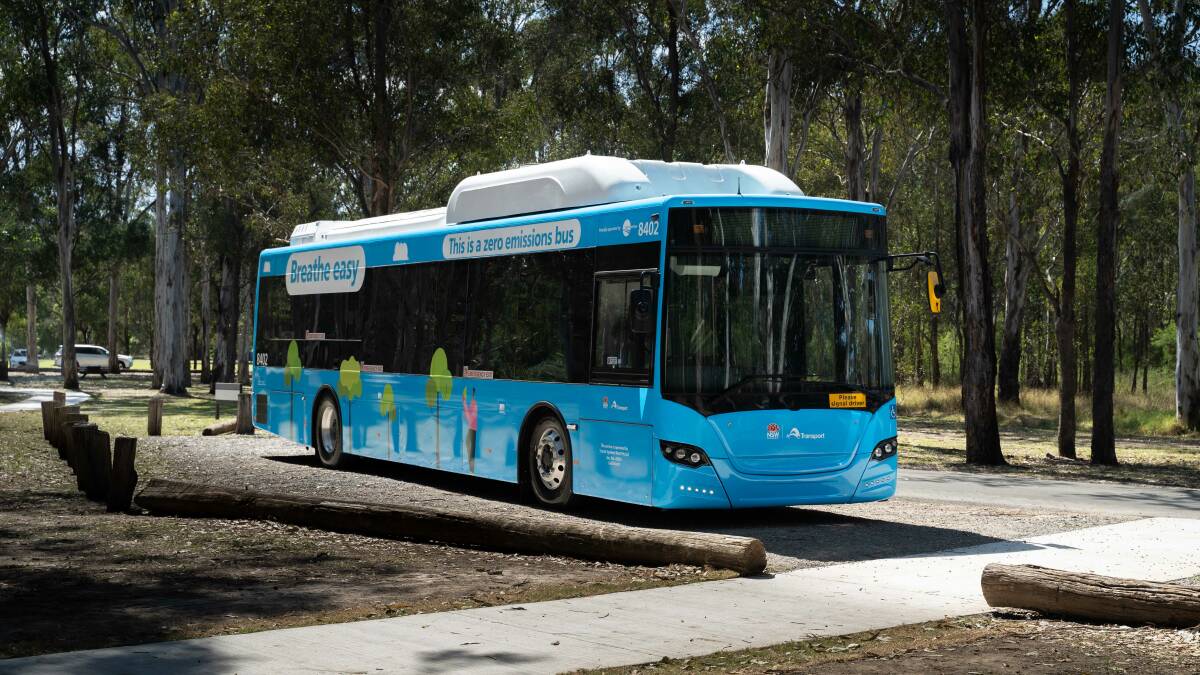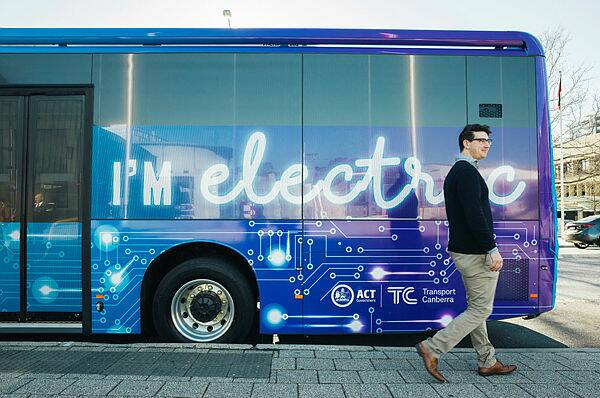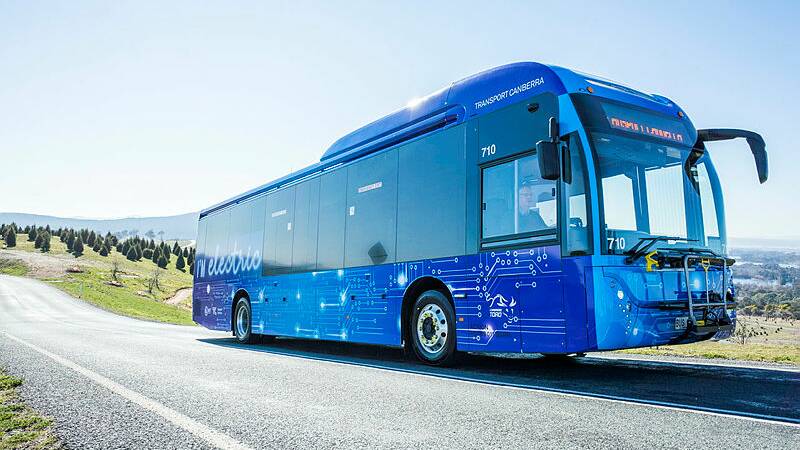
The ACT government will lease 26 new diesel buses to push its biggest emitters off the road and is taking a cautious approach to the next phase of its transition to electric public transport.
Transport Canberra will announce 12 new electric buses, eight built by Yutong in China and four by Custom Denning in Australia, as the first phase of its "steady-as-she-goes" transition to electric. These will be on Canberra's roads by the second half of this year.
The Yutongs will be based out of the Tuggeranong depot, and the Custom Denning Elements - which use an advanced, long life solid-state lithium-metal polymer battery pack - out of Belconnen.
The manufacturers of both types of buses are coy about the real-world range they can deliver although both brands can expect little more than 300kms per charge.
The electric buses' limited range and lengthy recharging times will present logistical and scheduling challenges for ACTION as no driver would want to leave the depot and potentially be left stranded, out of charge, partway through a route.
A further 90 electric buses will join the ACTION fleet in a further procurement process which is likely to stretch well into 2023 and beyond. No timeframe has been established for this process because it will heavily depend on the delivery of the new Woden depot, which will house most of them.
This distended process however, will play into the government's hands as battery technology accelerates and zero-emission hydrogen fuel-cell buses such as those built by Toyota - which offers a fast refuelling capability much better suited to heavy mass transport tasks like buses - becomes even better developed.
The ACT fleet renewal program is to zero-emission buses is slower and more cautious than had been originally foreshadowed.

The leasing of the 26 diesel Scanias from Bustech is an expedient move because it allows the government to cover off on its urgent requirements of passenger accessibility under the the Disability Discrimination Act.
The dozen electric buses will be the second rollout of zero-emission public transport in the ACT in the past five years after a trial in 2018 using a Volvo hybrid diesel/electric bus and two fully electric Chinese-made buses delivered mixed results.
The big issue for Transport Canberra, and for many other bus operators both public and private seeking to transition to zero-emission electric and even hydrogen fuel cell buses in the coming years, is the fast-developing nature of both technologies and the need to transition the supporting infrastructure at the same time.
The ACT floated a tender for 34 buses and supporting recharging infrastructure last year but withdrew it when none of the tenderers could satisfy the government's operational requirements. It had been thought that an operator could deliver a fast-track turn-key solution but none could in the timeframe demanded.
Six companies - Yutong Australia, Bustech, Custom Denning, Nexport and BCI (Mercedes) - make buses in Australia, with two using the Chinese-developed BYD battery technology and management systems. There are also also two zero-emission hydrogen fuel cell bus makers, with one of these, Foton Mobility, having a strong partnership with Toyota.

The most recent Greens-Labor government power-sharing accord states quite clearly that there should be no further purchasing of non-zero emission buses, although that agreement carried the caveat that "short-term leasing of buses to meet peak operational requirements is permitted".
No requirements were stated in the agreement as to whether the buses leased on short-term should be diesel or electric.
Part of the challenge in transitioning the ACTION bus fleet too quickly is the demand that it would place on the grid.
The government is desperate to move on 34 of its oldest ACTION Renault buses which are branded officially as a "service risk".
These buses pre-date the most basic European exhaust emission standards, are the least efficient and do not comply with the requirements of the Disability Discrimination Act.







